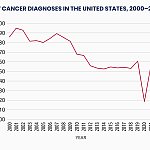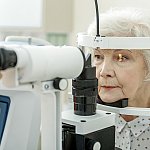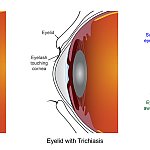
Researchers estimate that about
Alzheimer’s disease is normally not diagnosed until a person is age 65 or over. However, past studies show that Alzheimer’s disease-related
“Research suggests that the biological processes related to Alzheimer’s disease develop decades before clinical symptoms arise,” Allison Aiello, PhD, James S. Jackson Healthy Longevity Professor of Epidemiology in the Butler Aging Center and Columbia Mailman School of Public Health at Columbia University in New York told Medical News Today.
“Increasingly, evidence shows that health status and exposure in early to midlife predicts Alzheimer’s disease in older age. As a result, identifying and tracking risk factors and biological changes across the lifespan, especially those that can be modified or prevented, may be critical for mitigating Alzheimer’s disease. Therefore, an early approach to addressing risk factors for Alzheimer’s disease may help delay or even prevent the onset of disease.”
– Allison Aiello, PhD
Aiello is the lead author of a new study recently published in the journal
For this study, researchers analyzed medical data for more than 12,000 participants in Waves IV and V of the National Longitudinal Study of Adolescent to Adult Health, which tracked participants starting from adolescent age to their early 30s or 40s.
Scientists focused on three main Alzheimer’s disease-related biomarkers for their study. The first is the Cardiovascular Risk Factors, Aging, and Incidence of Dementia (CAIDE) score, which factors in a participant’s age, gender, body mass index (BMI), cholesterol, physical activity level, and systolic blood pressure.
The CAIDE score also took into account the presence of the gene variantapolipoprotein E e4 allele (APOE e4), which is a known
The third set of biomarkers researchers focused on in this study was
“The CAIDE risk score has been used in previous studies and has shown strong predictive value for Alzheimer’s disease risk decades before disease diagnosis,” Aiello explained. “Further, cardiovascular health is an important predictor of Alzheimer’s disease. Given that our study population was relatively young and did not yet have significant cardiovascular disease, we were interested to see if the CAIDE risk score also predicted cognition in young generally healthy individuals.”
“APOE e4 is a known genetic risk variant for Alzheimer’s disease, which has been shown to be significantly associated with Alzheimer’s disease in older populations,” she continued.
“While ATN biomarkers, such as tau, have been implicated in AD risk, most research has focused on individuals in middle or later life. Very little is known about these biomarkers in populations younger than 50. Thus, we investigated whether ATN biomarkers were associated with cognitive function decades before the typical age of [Alzheimer’s disease] onset,” the researcher told us.
At the study’s conclusion, researchers found that significant associations between cognition and Alzheimer’s disease-related risk biomarkers could be spotted in young adults as early as age 24 to 44, including CAIDE scores and cardiovascular risk factors.
“These findings provide early evidence supporting the view that Alzheimer’s disease is a lifelong process, with underlying changes potentially beginning much earlier in life than previously recognized,” Aiello said. “However, this is the first study to examine several of these risk factors in younger populations in relation to standard cognitive measures. Therefore, it will be important to validate these findings in future research.”
Scientists also found that ATN biomarkers showed associations with cognitive function before midlife.
“We [observed] associations between an ATN biomarker known as tau and cognitive outcomes in our relatively young cohort,” Aiello explained.
“It is possible that ATN biomarkers, some of which have been linked to cardiovascular health and inflammation, begin to reflect emerging health risks even in early adulthood, as individuals start to accumulate risk factors for broader health outcomes,“ she hypothesized. “Further research is needed to explore these early associations and their potential implications for long-term brain health.”
Conversely, Aiello and her team did not find any evidence suggesting the APOE e4 genetic variant affected study participants in early adulthood.
“Unlike prior research in older populations, we did not observe an association between APOE e4 and cognitive function in our younger cohort,” Aiello said. “Notably, other studies have similarly reported a lack of association between APOE e4 and cognitive measures in younger individuals.”
“The reason the relationship between this genetic risk marker and cognition emerges later in life but not earlier remains unclear,” she continued. “Some researchers have suggested that the effects of APOE e4 may accumulate gradually and become more pronounced after middle age, potentially due to interactions with other environmental or biological exposures.”
“We aim to continue following study participants across their life course to understand whether these early patterns can be modified through preventive behaviors and intervention strategies to ultimately reduce the risk of Alzheimer’s disease,” Aiello added.
MNT also had the opportunity to speak with Jasdeep S. Hundal, PsyD, ABPP-CN, director of The Center for Memory & Healthy Aging at Hackensack Meridian Jersey Shore University Medical Center, and associate professor of psychiatry and neurology at Hackensack Meridian Health School of Medicine in New Jersey, about this study.
“As a neuropsychologist and someone who specializes in understanding and detecting cognitive change across the lifespan, my first reaction was one of both validation and a sense of urgency in how we conceptualize Alzheimer’s disease risk,” Hundal, who was not involved in the research, commented.
He was struck by how early biomarkers of cognitive decline can potentially be detected:
“The fact that standard cognitive measures like immediate and delayed word recall and working memory (backward digit span) show measurable associations with cardiovascular and inflammatory risk factors in adults as young as their late 20s is striking.”
“Because Alzheimer’s is a progressive and multifactorial disease, its biological underpinnings are often in motion long before symptoms are evident,” he continued. “If we wait until cognitive deficits are clinically observable, we’ve already lost valuable time for intervention. That’s why continued research into early, preclinical markers of risk is not just important, it’s imperative!”
“From both a clinical and research standpoint, we need methods that can detect vulnerability before irreversible neuronal damage occurs,” Hundal added. “Studies like this help shift the field toward preventive neuroscience, allowing us to explore how modifying cardiovascular, metabolic, and immune factors early in life could alter the trajectory of brain aging.”





